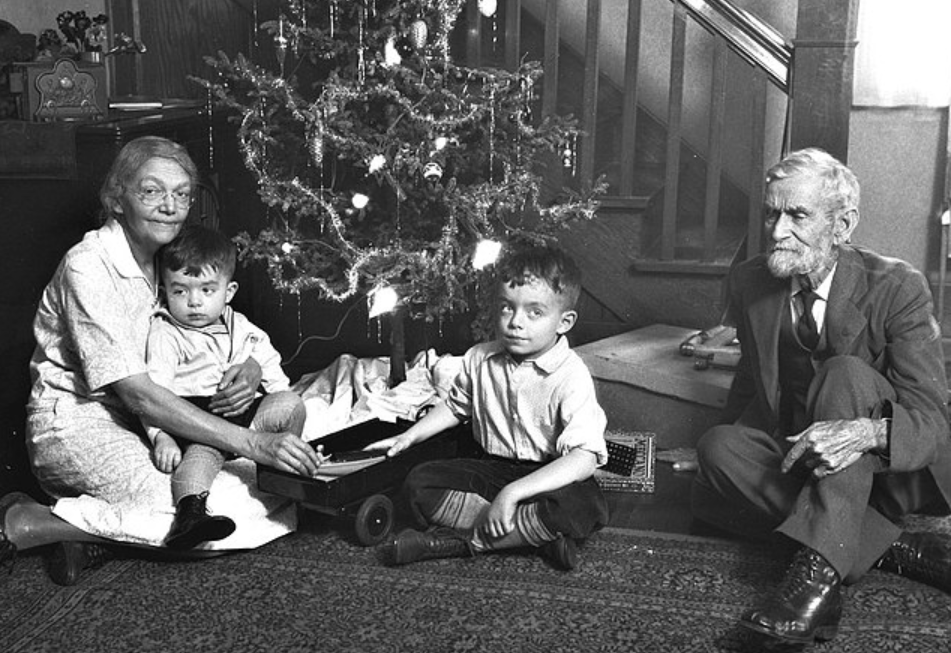The man in the nursing home began his story in a slow, weak voice. He was in his wheelchair. Facing the window.
I was 30, writing an assignment for a community college class. Creative writing. The nurse at the main desk said she knew of a man with a Christmas story worth telling.
And he told it well.
“It was a cold night,” he began. “The snow falling wasn’t snow-snow. It was more like white bricks. It wasn’t a ‘white Christmas.’ It was a hard one.”
The year was 1938. The place was Avondale, Alabama.
It was the apex of the Great Depression. Although that’s not what people called it back then. They simply called them “hard times.” And they were hard. Bone hard.
The family lived in a ratty apartment. There were four of them. A mom. A dad. Two kid brothers. They were hard up.
The two boys were good kids. Obedient. Well-behaved. Freckled. Their paw worked at the textile mill. Their mother did too. In fact, in a few years, the boys would be working at the mill also. Kids worked at mills in those days. Different times.
What the boys wanted that year were bicycles. But family Christmases were pretty lean. When you can hardly afford enough beans to feed two growing boys, you don’t buy bicycles.
The boys, for example, ate ketchup soup for dinner. The parents frequently ate oxygen casserole.
One year, for Christmas, the boys were out collecting scrap tin to raise money for their bikes.
As I said, different times.
When the boys finally raised enough gathering tin, they went directly into town to exchange their tin for cash. On the way home, something happened.
They found something. A roll of money. It was 10 one-dollar bills, wrapped in a rubber band. It was lying in the street. In the gutter.
In 1939, $10 was worth $200. At least. It was more cash than they had ever touched. A miracle from On High.
Still, it wasn’t theirs.
So they did what any good little boys would do. They asked whether the locals knew of anyone who was missing money. Nobody knew of any fiscal loss.
The grocer said, “Boys, I’ll keep the money for three days. If nobody comes forward to claim it, then it’s yours.”
Three days went by. Nobody claimed it. The boys knew exactly what they’d do with the windfall.
On Christmas morning, when their folks woke up, the parents found a sight in their living room. For Mama, there were sewing needles, dress-making shears, bolts of fabric, a new coat, and new shoes. They bought cigars for their father, a new suit of clothes, and a snappy new hat. They bought nothing for themselves.
The two parents were in shell shock.
“Where did you get all this?” they asked their children.
The boys explained about finding the money. And when they finished their telling, their father broke down and wept.
The father looked at them with bright eyes. He told them a story.
He had been on his way home from work, one Friday. He cashed a large paycheck. It was $10, from working overtime. He was on his way to buy his sons bicycles. He was going to give them to the boys for Christmas. But somehow he lost the money. He never said a word about it because he was ashamed.
“You shouldn’t have done this,” their father said.
Everyone held each other and cried. And they had a huge Christmas dinner that holiday. In all his years, it was the greatest Yuletide the old man could remember. Never to be outdone.
“Did you ever get a bicycle?” I asked the old man.
The old man wiped damp eyes and said words I’ll never forget: “Who needs a bike when you have love?”
I got a C on my assignment.
Sean Dietrich is a columnist and novelist known for his commentary on life in the American South. He has authored nine books and is the creator of the “Sean of the South” blog and podcast. The views and opinions expressed here are those of the author and do not necessarily reflect the policy or position of 1819 News. To comment, please send an email with your name and contact information to Commentary@1819News.com.
Don’t miss out! Subscribe to our newsletter and get our top stories every weekday morning.










